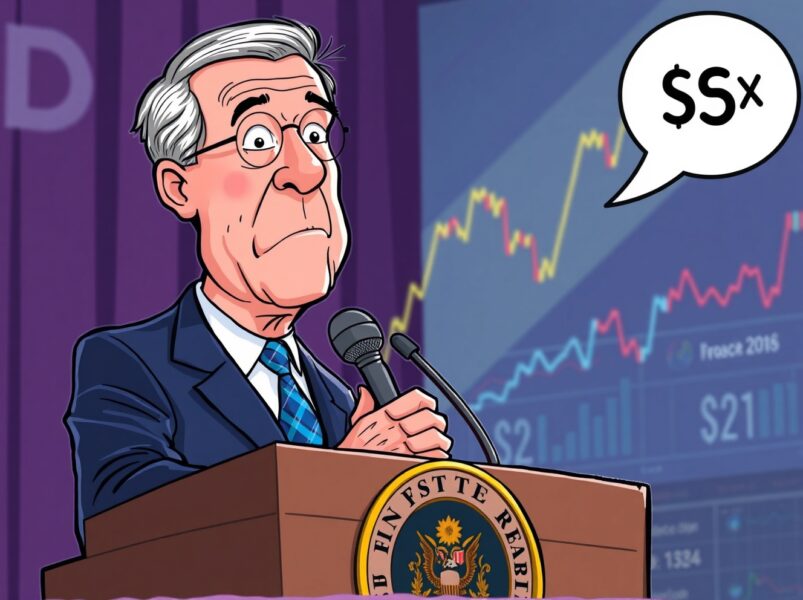On this episode of the CoinGeek Weekly Livestream, venture capitalist and author Seth Levine shared his perspective on how capitalism must evolve, how to address the energy problem, and why he believes that capitalism combined with technology can solve problems more effectively than any other approach.
Who is Seth Levine?
A few months back, venture capitalist Brad Feld joined the CoinGeek Weekly Livestream. Feld is a prominent VC based in Boulder, Colorado, and a co-founder at Foundry Group.
Levine is Feld’s partner and co-founder, having been there from the beginning when Foundry Group started over 20 years ago. He’s also an author, and his primary reason for appearing on the podcast is to share the ideas outlined in his new book, Capital Evolution.
Levine says he was shocked to learn that nearly half of the people under 40 believe capitalism is failing. He wrote the book to share his thoughts on how, while its current iteration needs reform, it’s the best system for creating and distributing wealth.
What is capitalism? And what is dynamic capitalism?
Fundamentally, capitalism is an economic system, but it’s more than that. Levine points out that it’s also an agreement between people, governments, and businesses. The neoliberal capitalist paradigm of the past 50 years hasn’t always been the prevailing system, and it won’t always remain so.
This paradigm is part of why capitalism is under threat—it prioritizes shareholders above all else and focuses on short-term profits. When people don’t feel like stakeholders, they have no incentive to maintain the system. With current circumstances, many younger people don’t even feel they have a chance to succeed.
The answer isn’t socialism or redistribution on a massive scale; it’s to create more capitalists. People need greater incentives to participate in the market economy, and Levine’s book outlines some ways to create them.
However, capitalism has always and will continue to reward risk-taking. When he co-founded Foundry Group 20 years ago, he almost lost it all. Thankfully, things went the other way, but a system that allows massive wealth creation will always entail risk.
Digital currencies, sound money, and leapfrogging
Part of creating more capitalists is increasing access to capital. Levine believes digital currencies can be to banking what cell phones were to communication. Back in the day, developing countries would have alleyways full of cables and long lines waiting to use them, but now most people have smartphones and can communicate instantly with anyone, anywhere.
As a result, these nations are leapfrogging, and in many cases, they’re ahead of the Western world. Leapfrogging means they skip the development curve and go straight from landlines to smartphones with 5G connections and access to the web, digital currencies, etc.
Wuckert asks what Levine’s thoughts are on sound money in relation to all of this. He says he doesn’t get into that in the book, but he’s very critical of large deficits and reckless spending. The only way out of the debt now is a huge productivity boost or hyperinflation.
Back to the top ↑
Climate change and capitalism as a solution
Wuckert notes that climate change plays a significant role in Levine’s book. While he’s on the fence about the extent to which humans have an impact, he wants to hear Levine’s thoughts.
As a techno-optimist, Levine believes we’ll be fine. He’s highly skeptical about government intervention. He points out that the USA won the 20th century because it was the world’s leading producer of energy, and he believes it can win the 21st century in the same way.
The key is massive investment in wind, solar, nuclear, and fossil fuels. Any idea that the USA won’t need fossil fuels by 2030 is wishful thinking; therefore, they should be part of the mix.
Wuckert draws Levine’s attention to the Satoshi Action Fund—this group is making deals with energy companies to scale back Bitcoin mining during peak hours in exchange for discounts during non-peak hours, creating efficiency where it didn’t exist before. It’s an example of how capitalists can do good while making good.
Back to the top ↑
The mindset shift required to reform capitalism
In Capital Evolution, Levine calls for a mindset shift toward what he calls ‘Dynamic Capitalism.’
This involves zooming out to see the long-term picture, rather than focusing solely on quarterly profits and shareholders at the expense of everything else. He discovered that the average Fortune 500 company only remains one for 25 years, so clearly, the managers aren’t considering the long game.
These are the incentives of the current neoliberal version of capitalism, and there’s some discussion even among large banks and companies about how this needs to change. It’s largely aspirational right now, but once again, neoliberalism wasn’t always the way things were, and it isn’t guaranteed to remain dominant.
The Golden Age of Capitalism in America was very different, and Levine advocates for an evolution to a modern form, considering profits, long-term goals, social obligations, and other factors.
Levine welcomes feedback, questions, and thoughts about his book and its arguments. It’s called Capital Evolution and is available now.
Back to the top ↑
Watch: Tokentus venture capitalist on Web3 prospects
Source: https://coingeek.com/capital-evolution-seth-levine-joins-coingeek-weekly-livestream-video/


